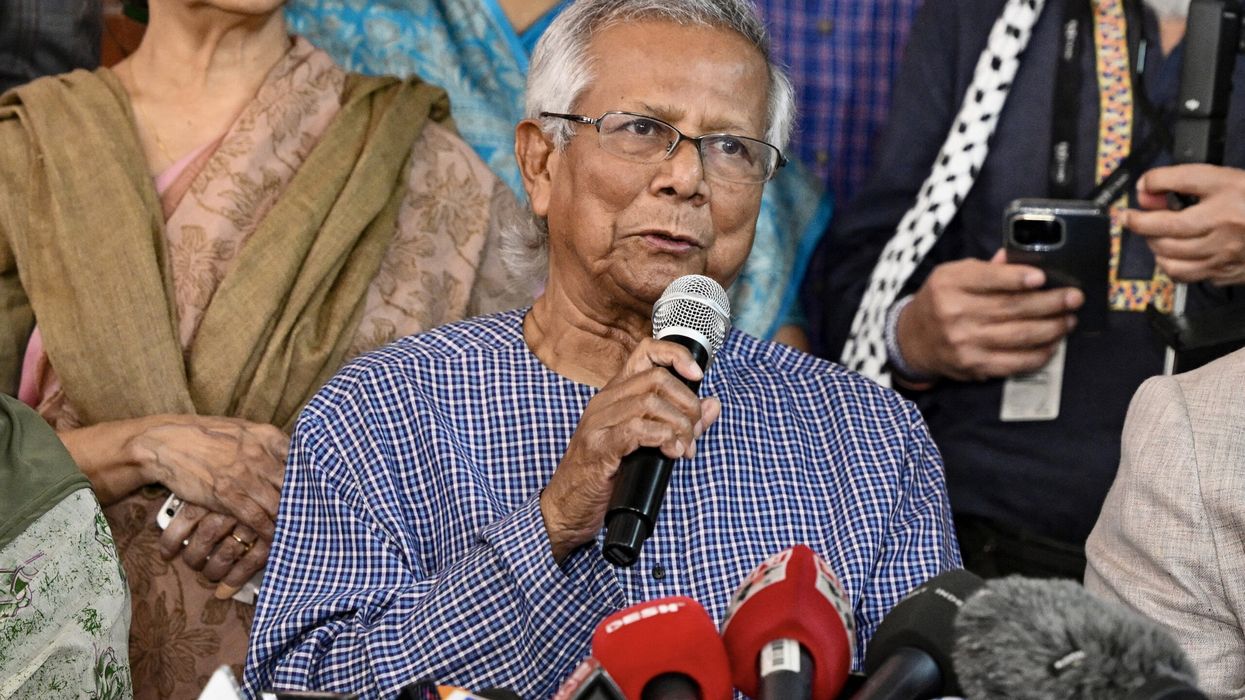A BANGLADESH bank confirmed last Saturday (17) it had ousted Nobel Peace prize winner Muhammad Yunus from two businesses he founded, weeks after his conviction in a criminal case his supporters say was politically motivated.
Yunus, 83, is credited with lifting millions out of poverty with his pioneering microlender Grameen Bank, but has earned the enmity of long-time prime minister Sheikh Hasina, who has accused him of “sucking blood” from the poor.
Hasina’s government forced Yunus’ resignation from the bank in 2011, leaving him to concentrate on running dozens of antipoverty firms he has founded.
The bank’s current government-appointed chairman said last Saturday its board had nominated new directors for at least two enterprises still under Yunus’s control.
“They don’t own the enterprises,” AKM Saiful Majid told reporters. “They are subsidiaries of the Grameen Bank.”
Grameen Bank chief legal counsel Masud Akhter said in a statement that Majid was now chairman of Grameen Telecom and Grameen Kalyan.
Grameen Telecom, originally created to offer cheap mobile phone services in rural areas, is one of Bangladesh’s richest companies. It owns a 34 per cent stake in the country’s largest mobile phone network, now worth billions of dollars.
Yunus told a news conference last Thursday a group of “outsiders” had come to a building that houses several of his companies this week to “forcefully” take over the offices and lock staff out.
He said there was no legal basis for his ouster, but that police had refused to register a complaint.
“We’re in deep trouble. It’s a big disaster,” he added. “They are trying to run the companies according to their rules.”
Dozens of people who claimed they were supporters of the ruling Awami League stood at the gates of the building earlier last Thursday (15) blocking entry to staff.
“They did not allow us to enter the building,” Mainul Hasan, a general manager of one of the Yunus-chaired firms, told AFP.
Some people entered the building claiming that they were the new directors of several of the firms, existing employees said.
Majid refuted that the takeover had been forceful or illegal.
Yunus’s popularity among the Bangladeshi public has for years earmarked him as a potential rival to Hasina, who won a fifth term in office last after an election boycotted by opposition parties.
Yunus and three colleagues from Grameen Telecom were sentenced to six months in jail last month after they were found guilty of violating labour laws.
All four denied the charges, which supporters and rights groups said were politically motivated, and have been bailed pending appeal.
Yunus is facing more than 100 other charges over alleged labour law violations and graft.
Rights group Amnesty International said last week “the ongoing harassment and intimidation of Professor Yunus is a blatant abuse of power”. (AFP)




